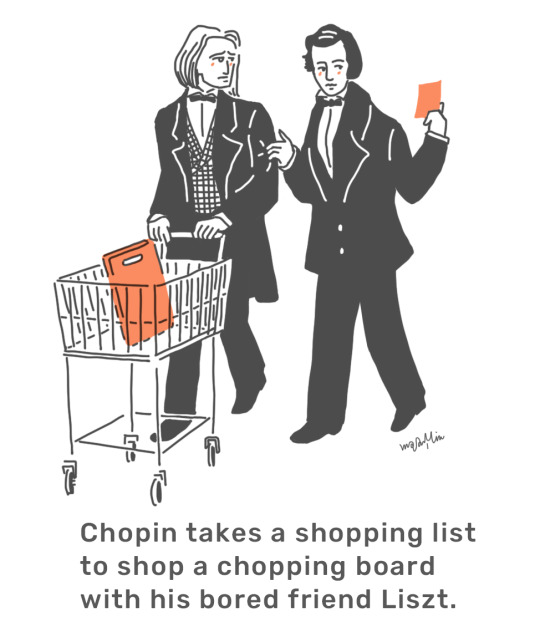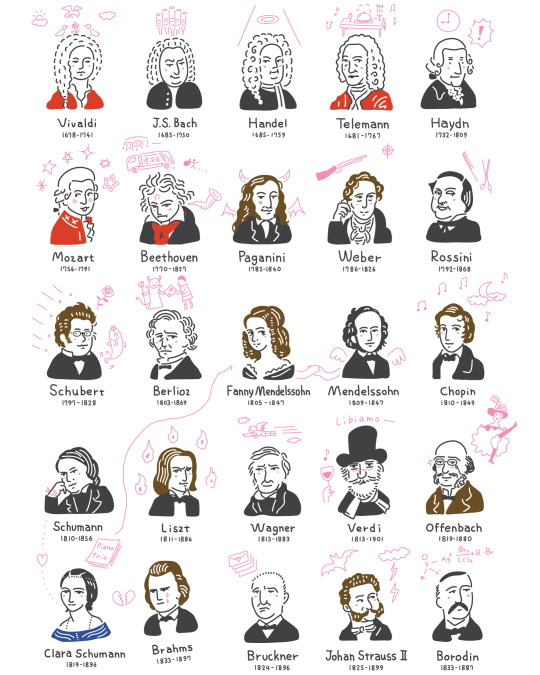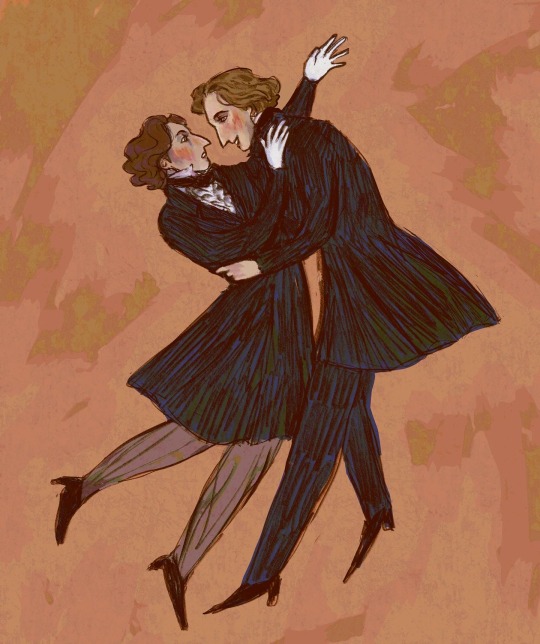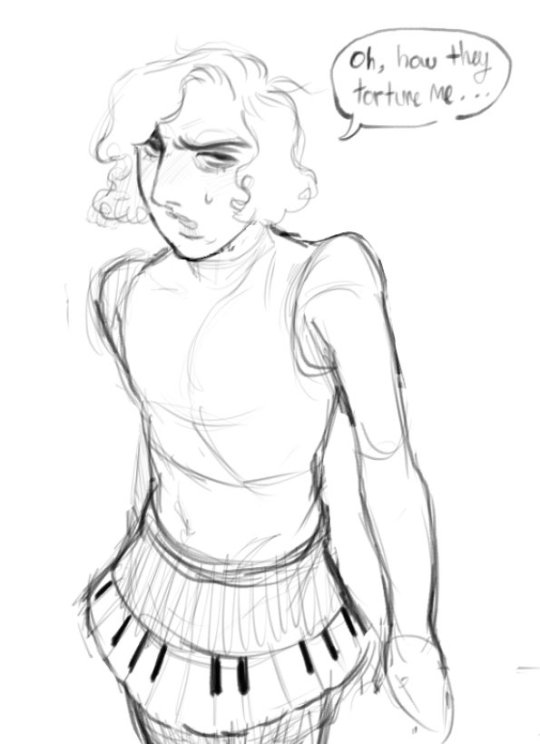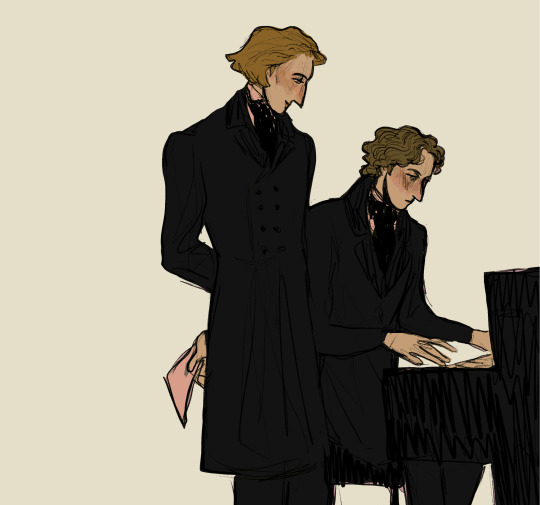Text
Now, I offer Chopin vs rectangle. Next time? Who knows? 🤨☝🏻
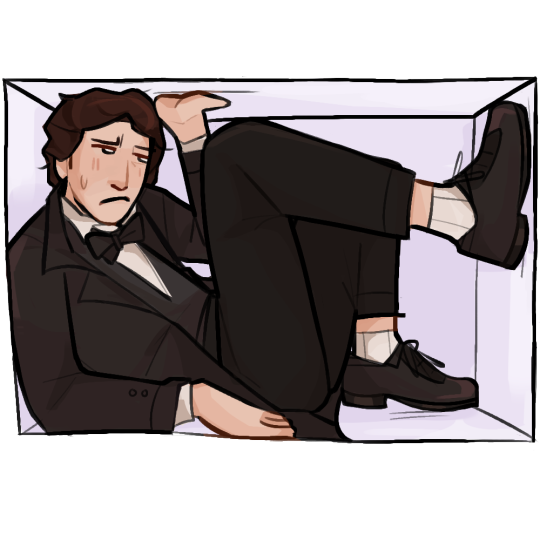
21 notes
·
View notes
Text
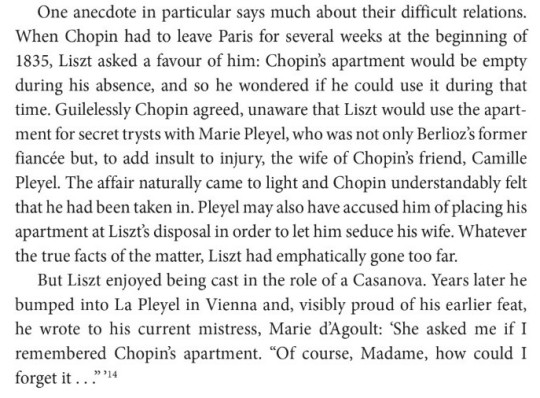
"Franz Liszt: Musician, Celebrity, Superstar", Oliver Hilmes
#still crazy that this happened#of all the outcomes too#also wondering why chopin would let liszt borrow his flat in the first place are they that close
40 notes
·
View notes
Text
Chopin biographies from 2010+
keeping track of my chopinology resources, and I figured someone might find it useful -- this is not an exhaustive list of available literature, just stuff I've personally read, and I will be adding to it over time.
Chasing Chopin: A Musical Journey Across Three Centuries, Four Countries, and a Half-Dozen Revolutions (2020)
by Annik LaFarge
English language, audiobook available
Summary: This is a partial biography of Chopin from the perspective of his composition of the funeral march. This book is written in a super engaging, conversational style, and it comes with a fun multimedia web site with music and videos for context.
Major pro: What sets this book apart from the other biographies in the field is LaFarge's exceptional empathy for her subjects. This may not seem like a big deal, but it is for a field that has been at times unnecessarily cruel to some of the humans in the story. That's partly why this book is my top recommendation for anyone wanting to understand Chopin's contentious relationship with his famous life partner of 9-ish years, George Sand (a woman using a man's name).
Major con: Using the composition of Chopin's arguably most famous work as the blueprint of his life story works well organizationally, but it doesn't actually add much to our understanding of the funeral march itself, beyond its personal impact on the author or, perhaps more broadly, the modern music lover.
Best for: anyone just wanting to read something engaging about music and history. If you don't know anything about Chopin, the history of Poland, or the funeral march, this is perfect.
Chopin. Miłość i pasja (2020)
by Iwona Kienzler
Polish language, no translation available as far as I know, audiobook (in Polish) available
Summary: This is a full biography with emphasis on the various romances that have been linked to Chopin over the last 200 years or so, real or not, even the ones we're not talking about anymore.
Major pro: There has been so much flowery language dedicated to the many and varied romances that Chopin did -- or maybe did or definitely didn't but we still talked about it a lot -- engage in, this book is refreshing for its sober tone and healthy skepticism on the subject. The author tells us what we know, what we don't know, and gives a historical perspective of the shifting notions the field has entertained over time.
Major con: The biography is fairly standard and doesn't expand the field much.
Best for: the casual reader of history, or the serious reader of the history of shipping.
Fryderyk Chopin: A Life and Times (2018)
by Alan Walker
English language, audiobook available
Summary: This is a full biography meant to encompass not only the entire course of Chopin's life but also the relevant social, political and cultural environment, the fates of people important to the story, and the musical context.
Major pro: Walker's effort to recreate the rich historical and social background of Chopin's life is unique in the field for its scope and detail, i.e., he gives a lot of information where most biographers stick only to summaries of critical events. This fact, as well as Walker's efforts to introduce or emphasize unknown or marginalized resources and documents, make his book an important blueprint for anyone studying Chopin, or even the early 19th century overall.
Major con: Walker's interpretations of Chopin's correspondence are dated and dense, which is a problem because the correspondence is the most important primary source we have (the musical compositions cannot be directly analyzed for concrete meaning). Most of Walker's takes on the content of the letters can be traced to interpretations made by previous biographers (whether or not he cites these is a toss-up), so it's not like anyone has ever done better per se -- however, the field now has the resources to do this work more perceptively. Walker had the opportunity (and I believe the responsibility) to step up to do that, but because he didn't, his biography was outdated the day it came off the press.
Best for: the reader already somewhat familiar with Chopin's biography, who is interested in developing a more complete image of the story, but who is also able to make critical judgments on the historical analysis, or at least recognize where such were made by the author. Also good for historians.
Chopin's Piano: In Search of the Instrument that Transformed Music (2018)
by Paul Kildea
English language, audiobook available
Summary: This is a partial biography of Chopin from the perspective of his composition of the Preludes and one of the pianos on which he composed them. The history picks up long after his death with a partial biography of Wanda Landowska, the famous pianist who eventually came to own the piano, through WWII.
Major pro: This approach is unique in Chopin biography for addressing his impact on the difficult history of the 20th century, with Nazis stealing the piano and Landowska's efforts to get it back. This creates depth of perspective where Chopin biography usually ends shortly after his death. It's a different type of story than the field is used to.
Major con: Because the scope is so broad, this book gives less of Chopin's own story overall, and sometimes the thread feels disjointed.
Best for: casual readers looking for an interesting, well-written story, or a historian interested in WWII-time chopinology.
Chopin: Prince of the Romantics (2010)
by Adam Zamoyski
English language, no audiobook
Summary: This is an updated edition of Zamoyski's 1979 Chopin biography (which I did not read, so I can't compare). This is my personal recommendation for a casual reader looking for a full biography, Chopin birth to Chopin death, and a good read.
Major pro: engagingly written, hits all the important points, and contains ample citations to direct the reader to major resources in the field.
Major con: contains some mythology that historians wouldn't take seriously today.
Best for: the casual reader, no previous Chopin knowledge required.
17 notes
·
View notes
Text
overtures are so sexy like yes introduce me to the themes and motifs before they show up in the narrative
4K notes
·
View notes
Text
I adore this recent trend (if that's the right word) of letting an orchestra play classical music on a festival. It's magical to see thousands of festival-goers going absolutely wild on Beethoven. Mosh/circlepits, crowd surfing. It's wonderful to see the orchestra and the audience having the time of their lives.
54K notes
·
View notes
Text
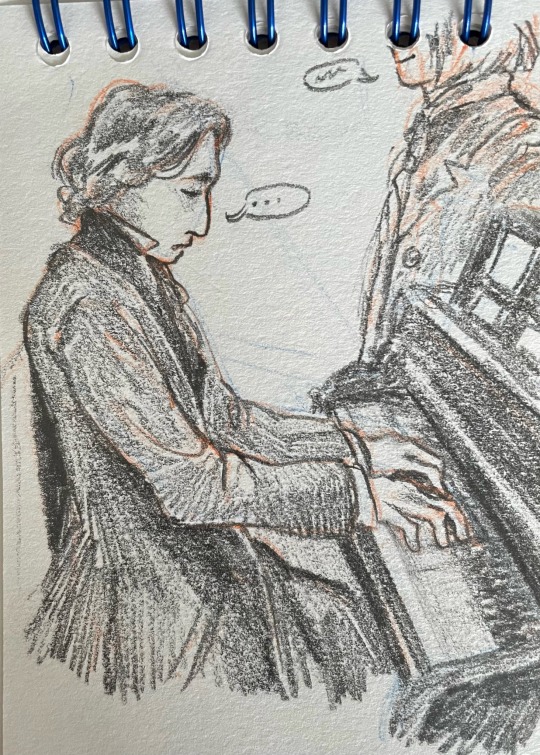
chopin sketch ^_^ (with a cut off liszt in the corner)
143 notes
·
View notes
Text
compilation of marquis in chopin’s letters and i tell you he basically adopted that dog as his unofficial son



pianist vs his gf’s puppy

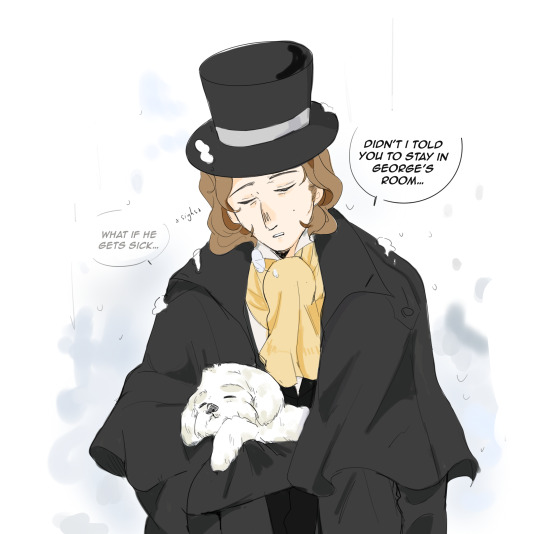
77 notes
·
View notes
Text
pianist vs his gf’s puppy


#marquis mentioned#chopin#frédéric chopin#classical composers#fryderyk chopin#chopins only son and it’s sand’s lil puppy
77 notes
·
View notes
Text

What does @wolfgangus-mozartus think about miku? 😨
83 notes
·
View notes
Text

I 🕺love💗 Poland 🇵🇱- Poland🤔?
I🙎♂️ love 😍Poland🇵🇱 - Why🤷♂️?
78 notes
·
View notes
Text
Dobry wieczór. Since it’s International Women’s Day (albeit not strictly), tonight I would like to draw my followers’ attention to the female pianists and composers who were my contemporaries… Apologies for the lengthiness, evidently there is a lot to be covered.
Clara Schumann 1819-1896
youtube
A child prodigy, Clara was taught piano by her father and by thirteen he was taking her on concert tours.
She met Robert Schumann as a child when he came to Leipzig to study law at the university. He took piano lessons from Clara’s father, Friedrich Wieck. When she was 18, he proposed to her. They married in 1840.
The virtuoso went on tours with her husband and earn money by performing and teaching. She was also a gifted composer, however most of her time was spent looking after her family, editing Robert’s music and playing. Clara’s compositions include more than 20 piano works, a piano concerto, some chamber music and several songs.
Fanny Mendelssohn 1805–1847
youtube
Composer and pianist, Fanny grew up in Berlin, sharing the same musical education as her brother Felix, with whom she had a close relationship.
Her compositions include a piano trio, a piano quartet, an orchestral overture, four cantatas, more than 125 pieces for the piano and over 250 lieder, most of which were unpublished in her lifetime. Although lauded for her piano technique, she rarely gave public performances outside her family circle.
Owing to her family's reservations and to social conventions of the time about the roles of women, six of her songs were published under her brother's name in his Opus 8 and 9 collections.
Marie Moke 1811-1874
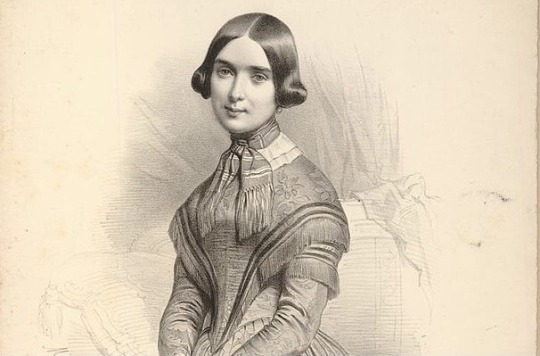
Marie Moke gave her first concert at the age of eight and by the age of fifteen, she was already known in Belgium, Austria, Germany and Russia as an accomplished virtuoso.
She married pianist and piano manufacturer, Camille Pleyel, but they later separated on account of her promiscuity. Heinrich Heine considered her among the greatest pianists “Thalberg is a king, Liszt a prophet, Chopin a poet, Herz an advocate, Kalkbrenner a minstrel, Mme Pleyel a sibyl, and Döhler a pianist.”
Later on, she created the piano school at the Royal Conservatory in Brussels where she taught from 1848 to 1872.
Louise Farrenc 1804-1875
youtube
A French composer, virtuoso pianist and teacher, she started playing young and had piano lessons with famous teachers such as Moscheles and Hummel. She studied composition privately with Anton Reicha at the Paris Conservatoire, unable to go to composition classes as a woman. By the 1820s she was touring France, giving concerts.
In 1842 she was made Professor of Piano at the Paris Conservatoire where she stayed for 30 years. For a decade she was paid less than the male teachers. Only after the triumphant premiere of her nonet did she demand and receive equal pay. She wrote a wide variety of piano music, but her chamber pieces are considered to be her best work.
Pauline Viardot 1821-1910
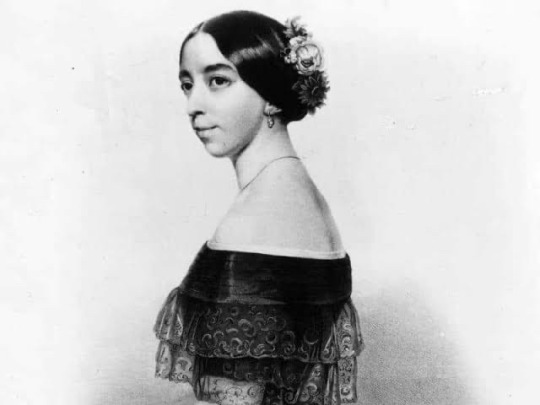
From a musical family (including her older sister, Maria Malibran) Pauline was trained by her father on the piano and in singing.
In her youth she took piano lessons with Franz Liszt and counterpoint and harmony classes with Anton Reicha. However, despite wanting to become a concert pianist, she was directed towards singing by her mother.
Pauline began composing when she was young, but it was never her intention to become a composer. Written mainly as private pieces for her students, her works were still of professional quality and Franz Liszt declared that, with Pauline Viardot, the world had finally found a woman composer of genius. Compositions include her chamber operas Le dernier sorcier and Cendrillon.
Arabella Goddard 1836–1922
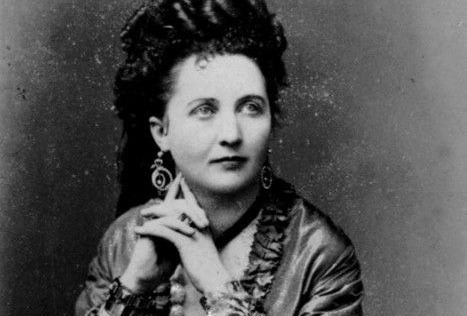
Born in France to English parents, at age six Arabella was sent to Paris to study with Friedrich Kalkbrenner. Aged seven she played for myself and George much to our pleasure.
During the 1848 Revolution her family had to return to England; there, Arabella had further lessons with Lucy Anderson and Sigismond Thalberg. She was known for her ability to play recitals from memory.
Arabella was appointed a teacher at the Royal College of Music in 1883. This was the RCM’s first year of operation and Arabella was its first female professor. She composed a small number of piano pieces, including a suite of six waltzes.
Marcelina Czartoryska 1817-1894
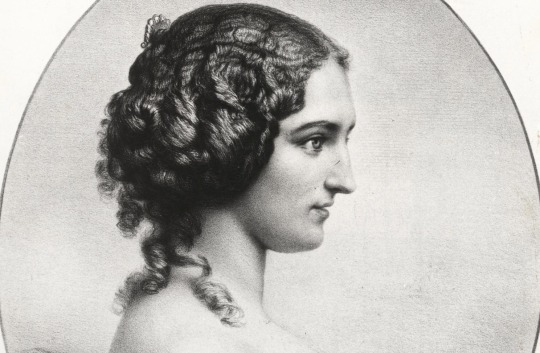
Born into the aristocratic Polish family, the Radziwiłłs, Marcelina was taught piano by Carl Czerny in Vienna and by myself in Paris. She gave concerts across Europe, with Franz Liszt, Pauline Viardot and Henri Vieuxtemps.
From 1870 she lived in Kraków, where she gave mainly private concerts and, thanks to her artistic connections, contributed to founding Kraków’s Academy of Music in 1888.
Maria Kalergis 1822-1874
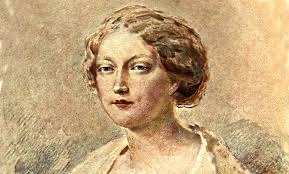
Raised in Saint Petersburg in the home of her paternal uncle, the Tsar's minister of foreign affairs, Maria received a thorough education where she evinced an early musical talent.
She was a student of mine and held salons in Paris whose guests included Liszt, Richard Wagner, de Musset, Gautier and Heine. Later, she became a hostess and a patron of the arts in Warsaw.
She was a co-founder of the Warsaw Musical Institute, now the Warsaw Conservatory and established the Warsaw Musical Society, now the Warsaw Philharmonic. Between 1857 and 1871 she made frequent appearances as a pianist.
On her death, Franz Liszt wrote his Elegy on Marie Kalergi.
30 notes
·
View notes
